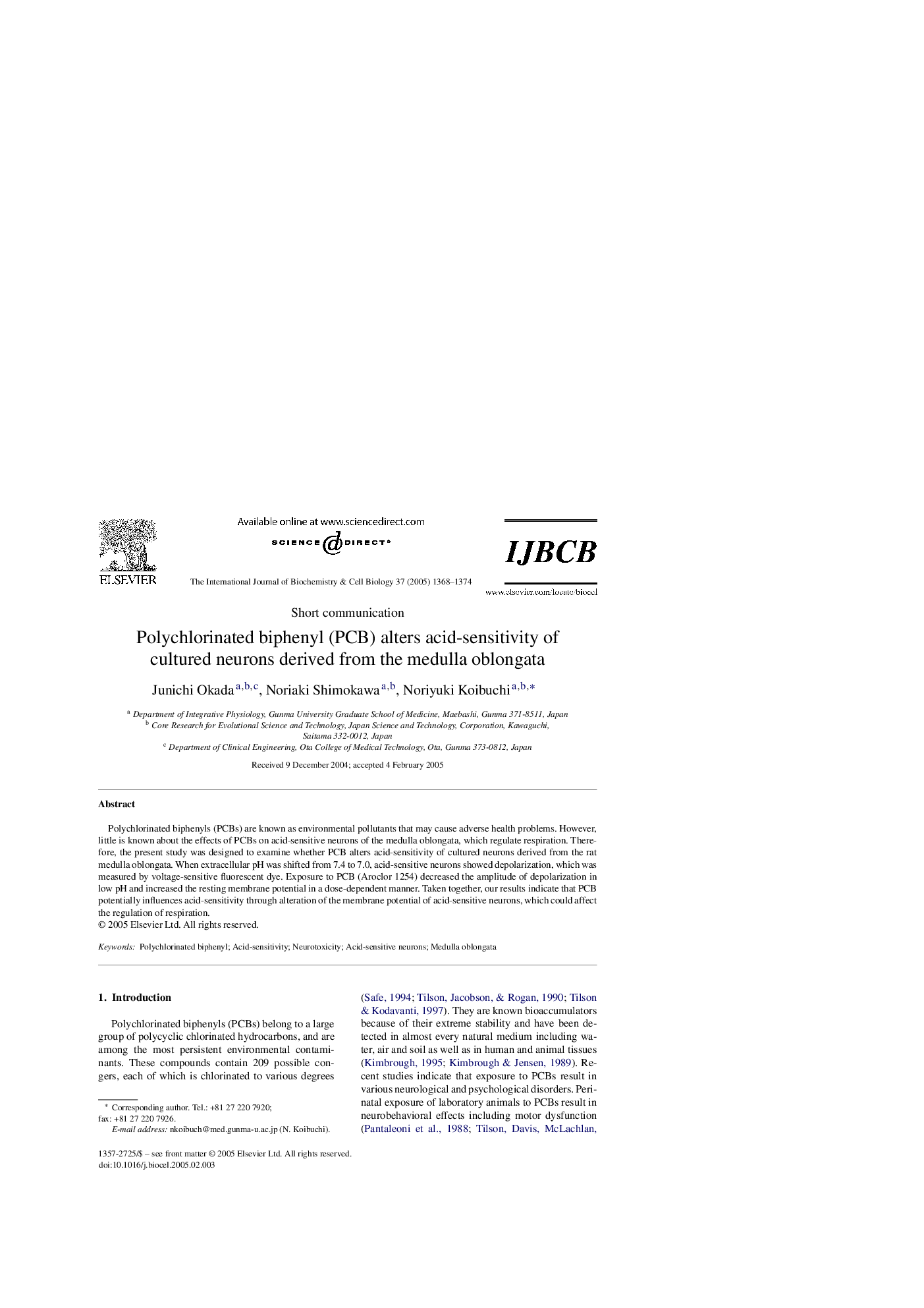| Article ID | Journal | Published Year | Pages | File Type |
|---|---|---|---|---|
| 9889989 | The International Journal of Biochemistry & Cell Biology | 2005 | 7 Pages |
Abstract
Polychlorinated biphenyls (PCBs) are known as environmental pollutants that may cause adverse health problems. However, little is known about the effects of PCBs on acid-sensitive neurons of the medulla oblongata, which regulate respiration. Therefore, the present study was designed to examine whether PCB alters acid-sensitivity of cultured neurons derived from the rat medulla oblongata. When extracellular pH was shifted from 7.4 to 7.0, acid-sensitive neurons showed depolarization, which was measured by voltage-sensitive fluorescent dye. Exposure to PCB (Aroclor 1254) decreased the amplitude of depolarization in low pH and increased the resting membrane potential in a dose-dependent manner. Taken together, our results indicate that PCB potentially influences acid-sensitivity through alteration of the membrane potential of acid-sensitive neurons, which could affect the regulation of respiration.
Related Topics
Life Sciences
Biochemistry, Genetics and Molecular Biology
Biochemistry
Authors
Junichi Okada, Noriaki Shimokawa, Noriyuki Koibuchi,
